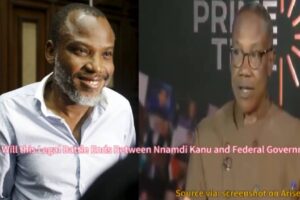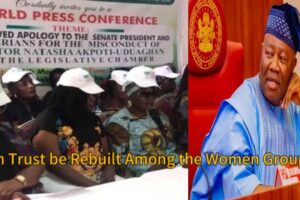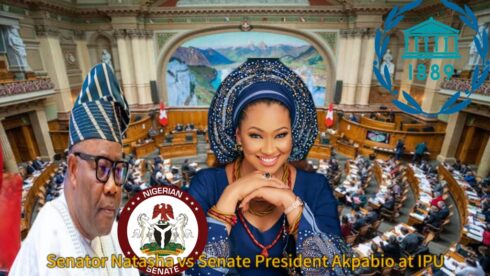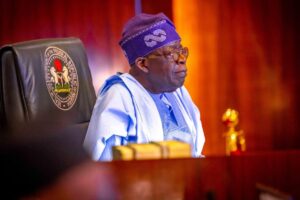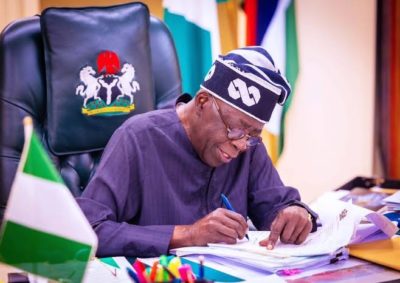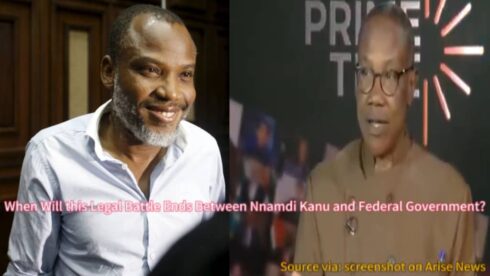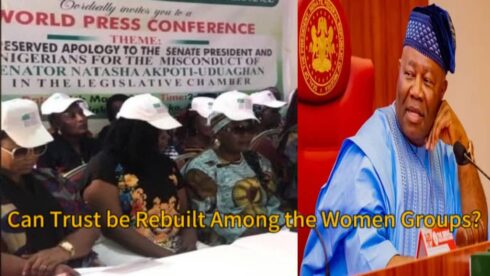President Bola Ahmed Tinubu has officially requested the National Assembly’s consent to secure an external loan of ₦1.767 trillion ($2.2 billion) to help address Nigeria’s pressing fiscal challenges. This proposal, outlined in the 2024 Appropriation Act, aims to offset a substantial budget deficit of ₦9.17 trillion. The loan is seen as a vital step in bridging the funding gap created by declining revenue streams and increasing governance costs. According to President Bola Ahmed Tinubu, the funds will be critical in sustaining public services, implementing developmental projects, and maintaining economic stability amid the nation’s recovery efforts.
As the government navigates a challenging economic landscape, President Bola Ahmed Tinubu emphasized the necessity of this borrowing to ensure continuity in critical sectors. The proposal highlights the administration’s commitment to funding essential programs that can stimulate economic growth and improve citizens’ welfare. However, the request also underscores the urgency for innovative strategies to boost domestic revenue and reduce dependency on external loans in addressing fiscal shortfalls.
A Ballooning Deficit: Breaking Down Nigeria’s Fiscal Challenges
The ₦9.17 trillion budget deficit reflects Nigeria’s ongoing struggles with limited revenue generation and increasing expenditure demands. Factors such as reduced oil revenue, subsidy reforms, and inflationary pressures have further compounded the fiscal gap.
Economic analysts have pointed out that without external financing, the government risks stalling critical developmental projects. However, concerns remain about the sustainability of increasing Nigeria’s external debt, particularly in light of existing repayment obligations and a volatile exchange rate.
Loan Details: How the ₦1.767 Trillion Will Be Utilized
According to the 2024 Appropriation Act, the external loan is earmarked to fund various development initiatives, including infrastructure projects, social welfare programs, and public sector reforms. The funds aim to stimulate economic growth, improve living standards, and enhance governance efficiency.
The Ministry of Finance has assured lawmakers and the public that the loan will be deployed judiciously. Additionally, there are plans to establish stringent oversight mechanisms to ensure accountability and transparency in disbursement and utilization.
President Bola Ahmed Tinubu: Legislative Scrutiny, Will the National Assembly Grant Approval?
President Bola Ahmed Tinubu’s request has sparked deliberations within the National Assembly, where lawmakers are assessing the proposal’s economic implications. While some senators have expressed support for the initiative, others have raised concerns about Nigeria’s escalating debt profile.
The legislative approval process is expected to involve detailed reviews of the proposed loan terms, repayment schedule, and its alignment with Nigeria’s fiscal sustainability framework. Lawmakers are also urging the government to explore innovative revenue-generation strategies to reduce reliance on external borrowing.
Public Reaction: Mixed Opinions on External Borrowing
The announcement has elicited mixed reactions from citizens and economic stakeholders. Supporters argue that the loan is necessary to address urgent developmental needs and bridge the budget deficit, given Nigeria’s limited fiscal space.
Critics, however, warn against the long-term consequences of excessive borrowing, emphasizing the risks of debt servicing eating into national revenue. Civil society organizations have called for increased transparency and periodic reporting on how the funds are utilized to prevent fiscal mismanagement.
Debt Sustainability Concerns: Navigating a Fine Line
Nigeria’s external debt stock has been a recurring subject of concern, with experts highlighting the need for a cautious approach to borrowing. The country’s debt-to-GDP ratio remains within manageable limits, but rising debt-servicing costs pose significant challenges to fiscal stability.
President Bola Ahmed Tinubu’s administration has pledged to strike a balance between borrowing and implementing policies to boost revenue. Strategies such as tax reforms, diversification of the economy, and attracting foreign investments are being explored to ensure sustainable economic growth without overburdening future generations.
Table of Contents
Discover more from OGM News NG
Subscribe to get the latest posts sent to your email.



